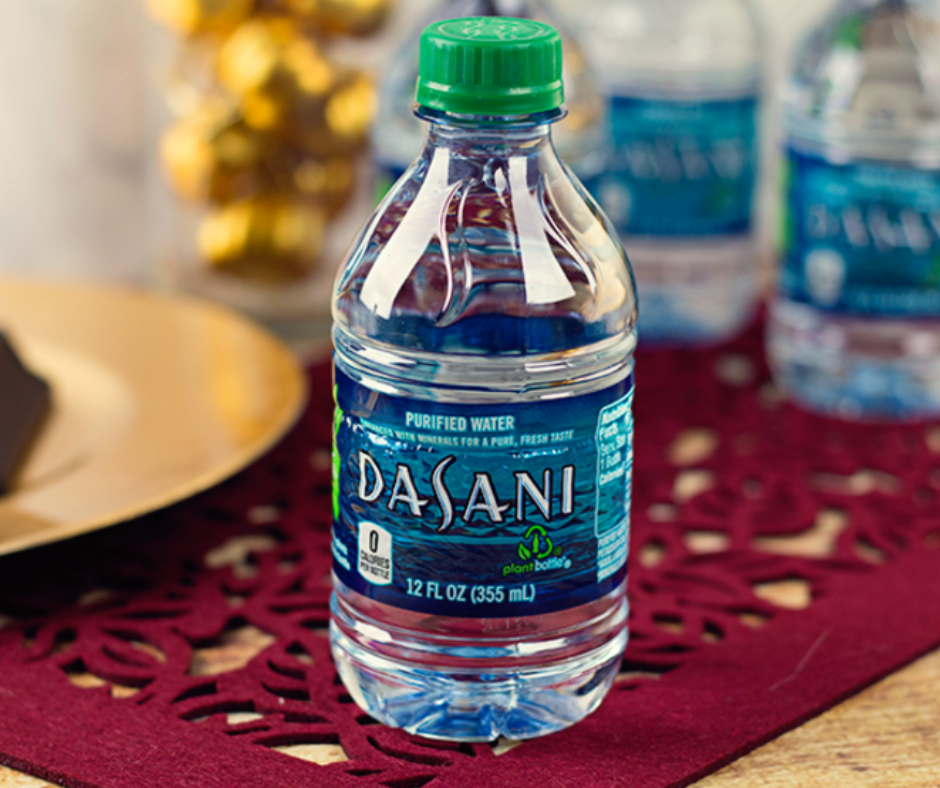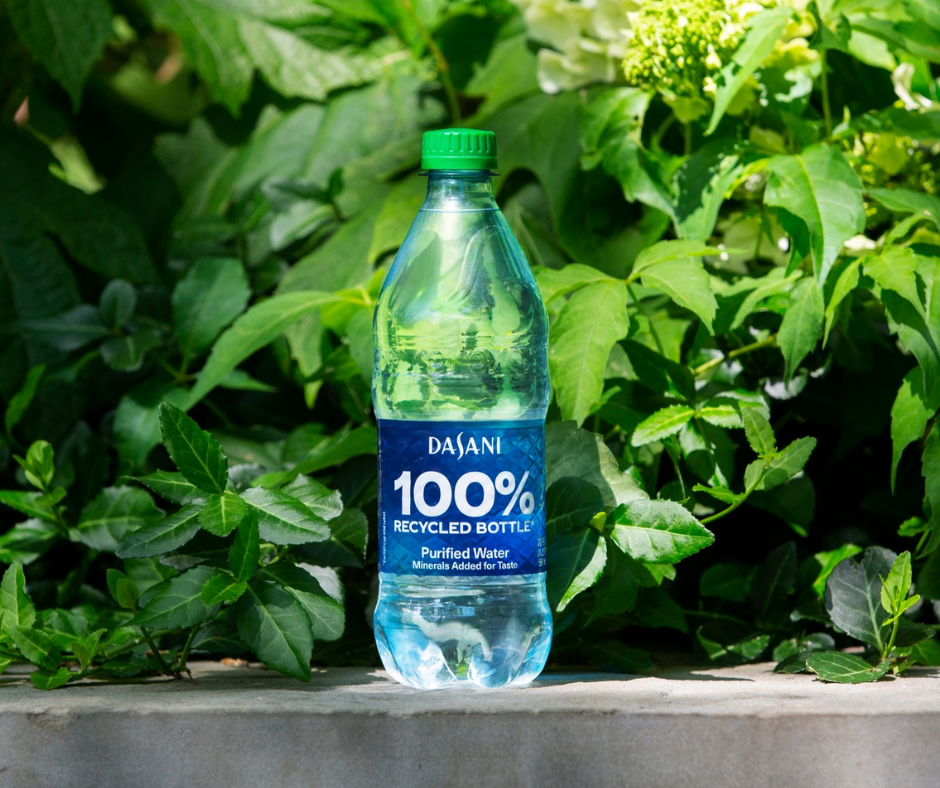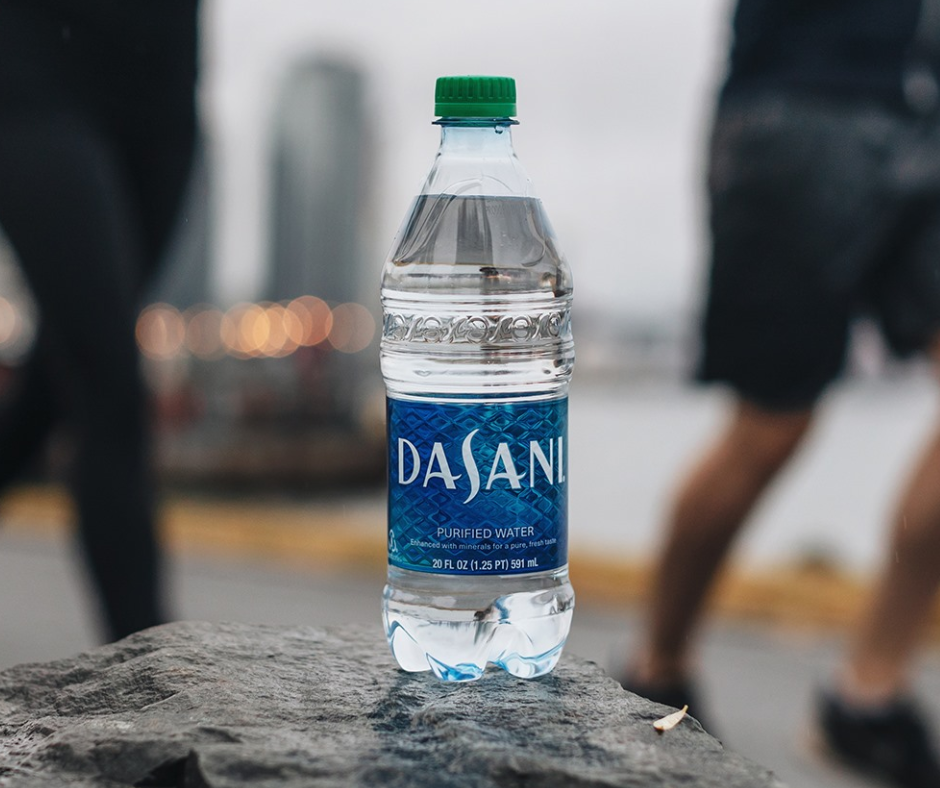Introduction
Dasani water has gained popularity and criticism since its introduction in the early 2000s. With concerns about bottled water’s quality and health effects, many people question ‘Is Dasani Water Bad For You?‘. In this article, we will analyze the reputation of Dasani Water and explore the controversies surrounding it.
A Brief Overview Of The Controversy Surrounding Dasani Water
Dasani, a brand owned by the Coca-Cola Company, faced controversy in 2004 when it was revealed that the water used in its production came from the same source as the tap water in the local area. This led to accusations that Dasani was selling tap water at an inflated price.
Another controversy arose when it was reported that Dasani used a purification process known as reverse osmosis, which removes minerals from the water. Some argue that drinking demineralized water can have negative health effects as it does not provide essential minerals our bodies need.
Furthermore, Dasani faced criticism for using plastic bottles in its packaging. Many consumers raised concerns about the environmental impact of plastic waste and the potential presence of harmful chemicals leaching from the bottles into the water.
However, it is important to note that Dasani has addressed these controversies. The company now clearly labels its bottles as “purified water” rather than using the term “spring water” or “natural water,” making it clear to consumers that it is not sourced from a natural spring.
It is also worth mentioning that Dasani undergoes a rigorous purification process, including filtration, reverse osmosis, and disinfection, to ensure the safety and quality of its water. The purification process removes impurities and potential contaminants, making Dasani water safe to drink.
Despite the controversies, Dasani remains one of the best-selling bottled water brands in the United States. The convenience and portability of bottled water, coupled with effective marketing strategies, have contributed to its popularity.
In conclusion, Dasani water has faced controversies regarding its source, purification process, and packaging. While concerns have been raised about Dasani water’s quality and health effects, the company has taken steps to address these issues and ensure the safety of its product. As with any product, it is ultimately up to the consumer to evaluate the information and decide, ‘Is Dasani Water Bad For You?’.
The Ingredients And Production Of Dasani Water
Dasani Water is a popular bottled water brand produced by The Coca-Cola Company. While many people consider bottled water a healthier alternative to sugary drinks, there have been concerns about ‘Is Dasani Water Bad For You?’. This article will analyze Dasani’s reputation by examining its ingredients and production process.
Dasani’s Source And Filtration Process
Dasani water is sourced from local municipal water supplies in various regions. The water undergoes a thorough purification process, including filtration, reverse osmosis, and disinfection with ultraviolet light. These steps are designed to remove impurities and ensure the water meets rigorous quality standards set by regulatory authorities.
Controversies Surrounding Dasani’s Ingredients
One controversy surrounding Dasani in the past was the disclosure that its water contained additives such as magnesium sulfate, potassium chloride, and salt. These additives enhance the taste and replenish minerals lost during the filtration process. While these additives are generally considered safe, some consumers expressed concerns about additional ingredients in their bottled water.
However, it’s important to note that most bottled water brands, including Dasani, comply with strict regulations regarding the safety and quality of their products. They are tested regularly to ensure they meet the standards set by regulatory bodies.
The Issue Of Potential Carcinogenic Bromate
One of the more significant concerns regarding Dasani water is the potential presence of bromate. Bromate is a byproduct of disinfection when water is treated with ozone and chlorine. In animal studies, high levels of bromate have been linked to an increased risk of cancer.
To address this issue, Dasani reduced the amount of bromate in its products by changing the disinfection process. The company switched to ozone-only disinfection, which has been found to reduce bromate formation. Dasani regularly tests its water to ensure that bromate levels are within acceptable limits set by regulatory authorities.
In conclusion, Dasani water undergoes a comprehensive purification process and complies with stringent regulations to ensure its safety and quality. While controversies surrounding the use of additives and the potential presence of bromate have raised concerns, Dasani has taken steps to address these issues. As with any consumer product, individuals are encouraged to make informed choices based on their preferences and needs. Drinking water is essential for maintaining hydration, and choosing a reputable bottled water brand can be a convenient option for many people.
Debunking The Myths: Is Dasani Water Bad For You?
Dasani water has been a popular brand choice for many consumers but has faced its fair share of controversy and skepticism. In this article, we will analyze the reputation of Dasani water and address some of the common concerns raised about its health.
Addressing Concerns About Taste And Fizziness
One of the most common complaints about Dasani water is its taste and perceived fizziness. Some consumers claim it tastes different from other bottled water brands and has an unnatural fizziness. However, taste preferences can vary greatly from person to person, and what one individual finds unpleasant, another might enjoy. The perception of fizziness can also be subjective, as carbonation in water can create a slight effervescence. It’s important to note that Dasani water does not contain carbonation; any perception of fizziness is likely due to dissolved minerals present in many bottled waters for taste.
Analyzing Hormone-disrupting Chemicals And Plastic Leaching
Another concern raised about Dasani water is the presence of hormone-disrupting chemicals like BPA (bisphenol A) and phthalates, which may be released from plastic packaging into the water. While it is true that certain plastics used in packaging can contain these chemicals, the levels found in Dasani water are well within the safety limits set by regulatory authorities. The Food and Drug Administration (FDA) closely regulates the safety of bottled water, including the materials used in packaging. Dasani water undergoes rigorous testing to ensure compliance with these regulations, and the risk of exposure to hormone-disrupting chemicals is minimal.
Unscientific Claims About Dasani’s Ph.D. Level
Some misleading claims have circulated about the pH level of Dasani water, suggesting that it is highly acidic and can disrupt the body’s pH balance. However, these claims are not supported by scientific evidence. Dasani water has a pH level of around 5.6, considered slightly acidic. However, the human body is highly efficient at maintaining its pH balance, and drinking slightly acidic water does not significantly impact this balance. Moreover, many substances we consume regularly, such as citrus fruits, also have acidic pH levels, which do not pose any health concerns.
In conclusion, Dasani water is a safe and healthy choice for hydration. Concerns about taste and fizziness are subjective and vary from person to person. The presence of hormone-disrupting chemicals in Dasani water is well-regulated, and the levels are within safety limits. The claims about Dasani water’s pH level are unscientific, as the body can effectively regulate its pH balance. It’s always important to stay hydrated, and Dasani water can be a convenient and reliable option for meeting your hydration needs.
Comparing Dasani Water To Tap Water And Other Bottled Waters
Safety Considerations: Dasani Vs. Tap Water
Regarding safety, tap, and bottled water undergo rigorous testing to meet quality standards. Dasani water is sourced from local municipal water supplies and then treated and purified through a multi-step process. On the other hand, tap water is treated by local water utilities and is subject to regulations set by the Environmental Protection Agency (EPA). Dasani and tap water are generally safe to drink, but some people prefer bottled water’s convenience and perceived purity.
Environmental Impact: Single-use Plastic And The Environment
One concern with bottled water, including Dasani, is the impact on the environment. The production and disposal of single-use plastic bottles contribute to pollution and landfill waste. Dasani has tried to reduce its environmental footprint by using lighter bottles and increasing the use of recycled plastic. However, the most environmentally friendly option is to drink tap water, which requires fewer resources and generates less waste. Using a reusable water bottle is a simple and effective way to reduce plastic waste.
Exploring The Healthiest Type Of Filtered Water
Filtered water can provide an additional layer of tap and bottled water purification. Various types of filtration systems are available, including activated carbon filters, reverse osmosis, and distillation. These methods can remove contaminants such as chlorine, lead, and bacteria. The choice of the healthiest type of filtered water ultimately depends on the specific contaminants present in the water source and individual preferences.
It is important to note that drinking water, whether tap or bottled, is essential for overall health and hydration. Staying hydrated helps maintain bodily functions, regulate body temperature, and support overall well-being. If you prefer the taste or convenience of bottled water like Dasani, it can be a suitable option, but it is worth considering the environmental impact and cost.
In conclusion, Dasani water is generally safe to drink and undergoes a thorough purification process. However, the environmental impact of single-use plastic bottles is a concern. Tap water is a more sustainable option; filtered water can provide an additional purification layer. Choosing between tap water, Dasani, or other bottled waters depends on personal preferences and environmental considerations.
FAQ about Is Dasani Water Bad For You?
Q: Is Dasani water bad for you?
A: According to our research, Dasani water is not necessarily bad for you. However, we do not recommend the brand due to its plastic packaging.
Q: Why is Dasani water controversial?
A: Dasani Water has received a lot of negative press. Some news publications have claimed that it is just bottled tap water, and there are allegations of poor taste and harmful ingredients.
Q: Is Dasani water filtered?
A: Yes, Dasani water is filtered. Unlike some other bottled water brands that come from natural springs, Dasani uses a filtration process to purify the water.
Q: How do you arrive at your conclusions about Dasani water?
A: We review published medical research in respected scientific journals to make informed conclusions about a product or health topic.
Q: What are the concerns about plastic packaging?
A: Research shows that hormone-disrupting chemicals can leach from plastic containers into water. Additionally, single-use plastic is harmful to the environment and potentially to human health.
Q: Does Dasani water have a poor taste?
A: Some consumers have claimed that Dasani water has a poor taste compared to other brands. However, taste preferences can vary from person to person.
Q: Is Dasani water a waste of money?
A: Whether Dasani water is a waste of money is subjective. Some people may prefer the taste or convenience of bottled water, while others may choose to drink tap water to reduce plastic waste and save money.
Q: Is there any concrete evidence supporting the negative claims about Dasani water?
A: While consumer claims and conspiracy theories surround Dasani water, concrete scientific evidence supporting these claims is limited.
Q: Are there any alternatives to Dasani water that are more environmentally friendly?
A: Yes, there are several alternatives to bottled water that are more environmentally friendly. These include using a water filter at home, carrying a reusable water bottle, and opting for beverages with less plastic packaging.
Q: What should I consider when choosing a bottled water brand?
A: When choosing a bottled water brand, it is important to consider factors such as the source of the water, the filtration process used, the packaging materials, and any certifications or quality standards the brand adheres to.
Conclusion: Is Dasani Water Bad For You?
Now you should know ‘Is Dasani Water Bad For You?’. After analyzing Dasani’s reputation and examining medical research and studies, it can be concluded that Dasani water is generally safe for consumption. While there have been controversies surrounding the brand, Dasani has taken steps to address these concerns and improve its overall product quality and transparency.
It is important to note that individual preferences and sensitivities may vary, and some might prefer other bottled water brands based on personal taste or concerns about additives. However, Dasani water does not pose significant risks or dangers from a health perspective.
A Summary Of The Analysis And Findings
During the analysis, it was found that Dasani water undergoes a rigorous filtration and purification process, meeting the established guidelines and regulations for bottled water. It is treated to ensure it is free from contaminants and impurities, making it safe for consumption.
As for the concerns about additives, Dasani water does contain minimal amounts of certain minerals and additives, such as magnesium sulfate, potassium chloride, and salt. These are added to enhance the taste and provide some essential nutrients. However, the quantities are within the permissible limits of regulatory authorities and are not considered harmful to human health.
Also, the plastic packaging used by Dasani has come under scrutiny, as with any other bottled water brand. While the company has tried to reduce its environmental impact by using lightweight bottles and promoting recycling, some individuals may prefer alternative options like reusable bottles or filtered tap water to reduce plastic waste.
References To Medical Research And Studies
Several studies have been conducted on the safety of bottled water in general, and they generally support the view that bottled water, including Dasani, is safe for consumption. The U.S. Food and Drug Administration (FDA) and other regulatory bodies have established strict standards and regulations to ensure the quality and safety of bottled water.
It is important to note that individual sensitivities or specific health conditions may require consulting a healthcare professional or nutritionist for personalized recommendations regarding water consumption.
In conclusion, Dasani water is generally considered safe for consumption. While personal preferences and concerns may vary, Dasani has implemented measures to address past controversies and improve product quality. It is always recommended to make informed choices based on personal preferences, health concerns, and environmental considerations when selecting bottled water or other sources of hydration.

Deb Carlson at Crosslake Coffee: Join Deb at Crosslake Coffee for a delightful blend of community, caffeine, and creativity. Discover the cozy ambiance and warm hospitality that make this local coffee shop a beloved gathering spot. From expertly crafted espresso drinks to mouthwatering pastries, Deb invites you to savor every sip and bite. Stay connected with the latest updates on specials, events, and live music performances by following Deb Carlson at Crosslake Coffee on social media. Embrace the vibrant online community and share your love for great coffee and good company with fellow enthusiasts. Don’t miss out on a moment of the Crosslake Coffee experience – connect with Deb on social media today.



